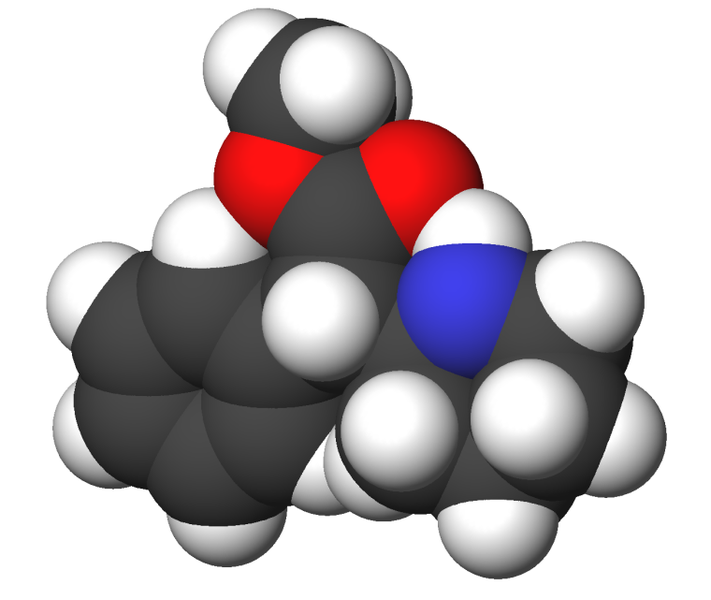

Methylphenidate (Ritalin, Concerta)
Ritalin Is…
a central nervous system stimulant. Created in 1954, Ritalin has been in use for over sixty years. (Check out a History of Ritalin here). It was first FDA approved in 1955 to treat ‘hyperactivity’ and later was approved to treat attention deficit hyperactivity disorder (ADHD).
Ritalin increases extracellular levels of dopamine by blocking dopamine transporters – thus producing higher levels of dopamine at the nerve ending and increasing dopamine activity.
This translates into increased activation of the reward and pleasure centers of the brain, reduced ‘hyperactivity’, increased concentration and reduced stimulus overload.
Ritalin may also be able to increase some parts of the energy production pathway. Ironically, given its stimulant properties some people report increased feelings of well-being as well.
Ritalin may also be able to increase endurance.
Ritalin Could Help in Chronic Fatigue Syndrome (ME/CFS) and/or Fibromyalgia Because
because it increases concentration, reduces stimulus overload, enhances calmness and may be able to increase endurance.
Studies
A small trial of Ritalin found increased thinking ability and reduced daytime sleepiness but only in 17% of Chronic Fatigue Syndrome (ME/CFS) patients. A pilot trial combining low-dose Ritalin and mitochondrial and immune enhancing supplements, however, found that over 70% of patients received ‘clinically significant’ benefits from the drug.
A double-blinded, placebo controlled trial combining Ritalin with immune and mitochondrial boosting nutrients (the Synergy trial) would have been successful if not for the high placebo response found.
- See Stimulating Energy: Enhancing the Mitochondria in the Synergy Clinical Trial for Chronic Fatigue Syndrome
- Synergizing Health? The K Pax Chronic Fatigue Syndrome Study Results are In…
Chronic Fatigue Syndrome (ME/CFS) Physicians Report
Dr. Teitelbaum believes Ritalin is underused in ME/CFS. Dr. Bateman uses both Ritalin and Adderall but in general prefers Adderall. Ritalin can exacerbate sleep problems in some patients. The IACFS/ME Treatment Primer states anecdotal reports suggest that Ritalin can have moderate to marked benefits but that tolerance can develop if used daily.
Dose
Ritalin has been shown to be effective in a very wide variety of doses in ADHD and the recommended dose range is wide in ME/CFS as well. The IACFS/ME Treatment Primer and Dr. Bateman recommend 5-20 mgs. taken 2-3x’s a day. Dr. Teitelbaum recommends 10-30 mgs. taken 3x’s a day for sixty days max. Dr. Rowe. – who treats pediatric patients – recommends low doses in the beginning (5 mg in morning) repeated, if necessary, 4 hours later for orthostatic intolerance. The dose can be doubled in the afternoon or it can be given twice (5 mg/5mg) in the afternoon.
Side Effects
Ritalin is usually well tolerated at lower doses. Side effects can include sleeping difficulties, stomach pains, potentially addictive, headaches, palpitations, high blood pressure. Because of its potential for addiction Ritalin is a Schedule II drug and requires frequent doctor visits. Tolerance can develop if used daily. One ME/CFS patient suggests taking magnesium to reduce the risk of tolerance developing.
This summary was put together by a layman with ME/CFS and is not intended to provide complete information on the side effects or any other aspects of this drug. It is for informational purposes only.
_________________________
Lucinda Bateman, MD., 2006. “Tips and Travails of Treatment”, An abridged version of a seminar transcript of a Nov. Lecture in Auckland, New Zealand, by Pat Fero and David Thompson.
Charles Lapp, MD.,2002. HealthWatch Treatment Guide. On the Effective Treatment of Chronic Fatigue Syndrome and Fibromyalgia. ImmuneSupport
Rowe, Peter. http://www.pediatricnetwork.org/medical/OI/johnshopkins.htm
Carol Sieverling, 2000, “Paul Cheney, M.D. on SSRI’s and Stimulants: Frying the Brain” From the CFIDS and FMS Support Group of Dallas Fort Worth.
Jacob Teitelbaum, 2007. From Fatigued to Fantastic 3rd ed., Avery Press.





